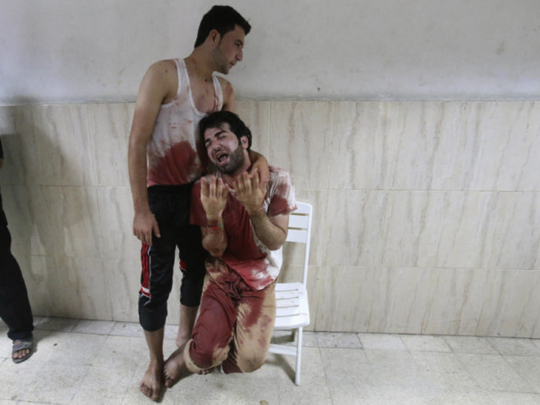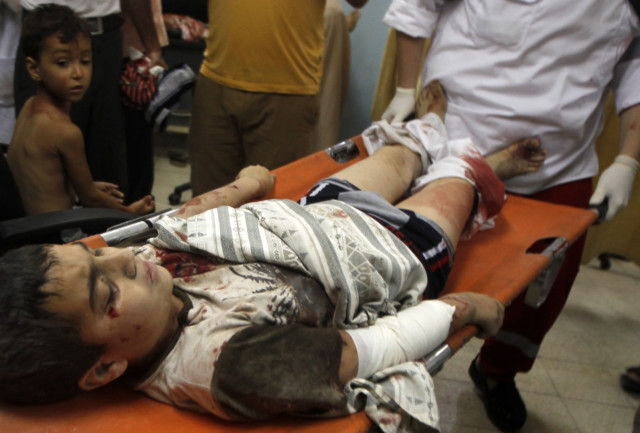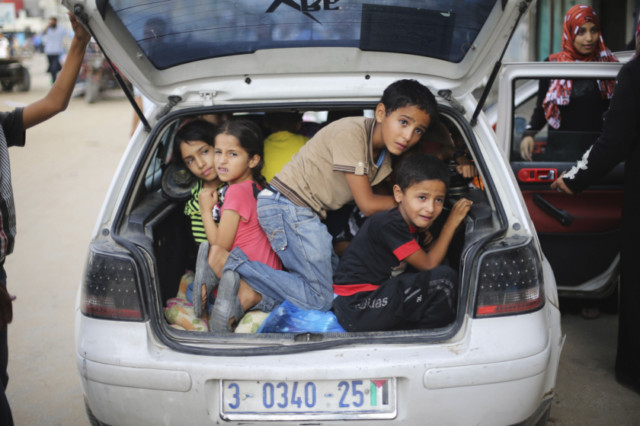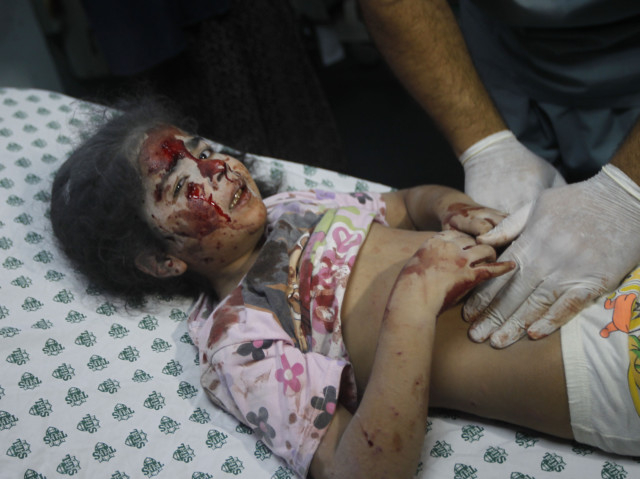
Ramallah: The constant stream of injured civilians being brought into Gaza’s hospitals has taken a severe toll on medical workers.
Working around the clock, doctors and nurses often have to treat their own family members. Others cannot find the time to get away from the hospital to check on their families back at home.
Doctors say despite their commitment to treat the injured, they remain in a constant state of fear for their families. Dr Jihad Alwan, an anaesthesiologist, was called to the morgue of the Al Shifa’a hospital to identify the bodies of his two nephews, Qasem Hamed Alwan, 4, and Emad, 6, who were torn to pieces by an Israeli artillery shell.
His third nephew, Abdullah, barely held onto life after sustaining critical injuries. Alwan told Gulf News that Israeli tanks targeted the minaret of Al Ebaki Mosque in Al Tufah neighbourhood but the shells missed the structure and landed in the kitchen of the Alwan family as its members prepared to break their fast.
The wife of another doctor, who did not want to be named, lost her baby in the eighth month of her pregnancy and had to undergo surgery without her husband, who was on a different floor of the hospital.
The doctor said he was on his duty while his house was the target of an Israeli tank bombing. His wife was a victim in the bombardment and while she was rushed to the hospital where he worked, he did not have a chance to see her as she was admitted to surgery while he was busy with tens of other seriously injured victims, including at least six children.
Dr Mohammad Sameer Hamad, a specialist doctor in Al Shifa’a Hospital, was at work when he was informed that ten of his immediate family members had died in an Israeli strike and that tens of others had suffered injuries. The dead and injured were rushed to the European Hospital, but Dr Mohammad did not have the chance to travel to that hospital to check on the family members that survived and kept on with his work in Al Shifa’a hospital.
He said that the work does not give the doctors and the health workers the chance to sleep and that even if the doctors wanted to go home to spend some time with their families, the streets were not safe and public transportation has stopped in Gaza. Dr Hamad said that many families have split into different parts of Gaza to avoid exposing the entire family to the risk of being killed in a single strike.
Dr Mohammad said that he had followed the steps used by his colleagues to reduce their level of worry about their families, adding that he had split his family between different parts of Gaza Strip to avoid exposing the entire family to danger and to reduce the risk of the entire family being killed. Power outages have also made it almost impossible to get in touch with family members as cell phone batteries die.















